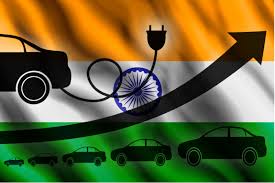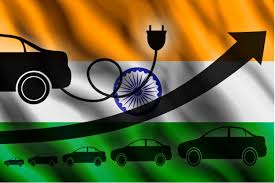
Proposals to participate in India’s $2.4 billion battery project have been formulated and submitted to the Indian government by Indian conglomerate Reliance Industries, South Korean automaker Hyundai Motor Co, and manufacturer Mahindra & Mahindra, among others firms, according to reports citing sources with knowledge of the matter.
The Indian government’s strategic aim to construct a domestic supply chain for accelerating the area of development of clean transportation and building storage for renewable energy is the reason for the Indian government finalizing an incentive package last year which is designed to encourage companies to engage in local battery manufacture.
The companies reportedly submitted the proposals on Friday.
According to the reports quoting sources, the Japanese investment giant Softbank Group-backed Ola Electric, engineering conglomerate Larsen & Toubro, and battery manufacturers Amara Raja and Exide have also filed bids to be part of the incentive scheme.
None of the companies named in the reports provided any comments on the issue.
India plans to build a total of 50 gigawatt hours (Gwh) of battery storage capacity over the next five years, with an estimated $6 billion in direct investment.
Companies are expected to install at least 5 GWh of storage capacity and adhere to specific local content requirements in order to qualify for the incentives, which would require a minimum expenditure of more than $850 million.
According to the reports, around ten companies have filed proposals which have a total proposed investment of almost 100 Gwh.
India was also enticing international companies to invest in this sector in the country, including Tesla Inc., Samsung, LG Energy, Northvolt, and Panasonic.
India's goal of lowering pollution in major cities and reducing oil dependence includes clean auto technologies.
However, electric vehicles account for a small percentage of the total sales of vehicles in the country, owing to the high cost of electric vehicles and the fact that batteries have to be imported which increases the costs of such batteries.
By 2030, the South Asian nations want electric cars to account for 30 per cent of private automobile sales of the country, with electric motorcycles and scooters accounting for 40 per cent of such sales, fueling demand for batteries, which presently account for around 35% to 40 per cent of overall vehicle costs.
(Source:www.economictimes.com)
The Indian government’s strategic aim to construct a domestic supply chain for accelerating the area of development of clean transportation and building storage for renewable energy is the reason for the Indian government finalizing an incentive package last year which is designed to encourage companies to engage in local battery manufacture.
The companies reportedly submitted the proposals on Friday.
According to the reports quoting sources, the Japanese investment giant Softbank Group-backed Ola Electric, engineering conglomerate Larsen & Toubro, and battery manufacturers Amara Raja and Exide have also filed bids to be part of the incentive scheme.
None of the companies named in the reports provided any comments on the issue.
India plans to build a total of 50 gigawatt hours (Gwh) of battery storage capacity over the next five years, with an estimated $6 billion in direct investment.
Companies are expected to install at least 5 GWh of storage capacity and adhere to specific local content requirements in order to qualify for the incentives, which would require a minimum expenditure of more than $850 million.
According to the reports, around ten companies have filed proposals which have a total proposed investment of almost 100 Gwh.
India was also enticing international companies to invest in this sector in the country, including Tesla Inc., Samsung, LG Energy, Northvolt, and Panasonic.
India's goal of lowering pollution in major cities and reducing oil dependence includes clean auto technologies.
However, electric vehicles account for a small percentage of the total sales of vehicles in the country, owing to the high cost of electric vehicles and the fact that batteries have to be imported which increases the costs of such batteries.
By 2030, the South Asian nations want electric cars to account for 30 per cent of private automobile sales of the country, with electric motorcycles and scooters accounting for 40 per cent of such sales, fueling demand for batteries, which presently account for around 35% to 40 per cent of overall vehicle costs.
(Source:www.economictimes.com)





